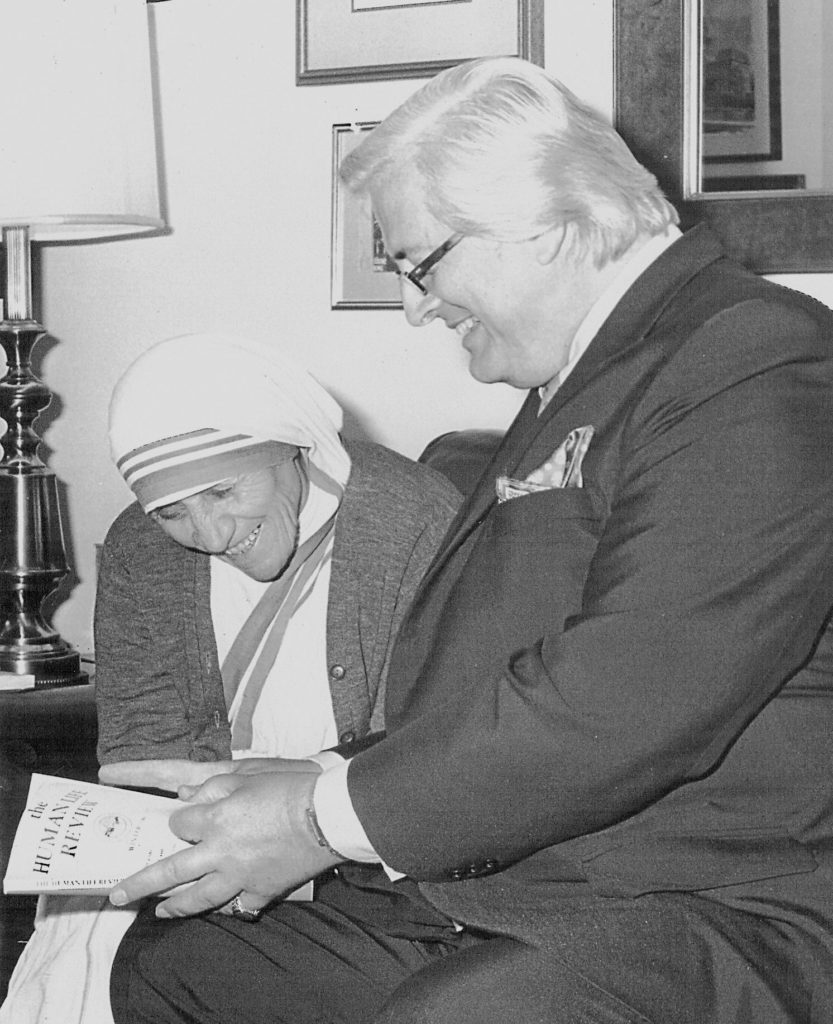The 54 Million Person Hole in America, Partly Dug by Planned Parenthood, Partly Filled by Henry Hyde
“The 54-million-person hole in America.” That’s the title of Christian Schneider’s Sept. 25 column in the Milwaukee Journal Sentinel. And what a thought-provoking column it is. When Schneider was four, he tells us, his five-year-old sister was killed after a tornado sent a tree crashing into the family’s camper.
“At 4 years, old,” he writes, “I wasn’t exactly sure what that meant. And we didn’t talk about it. But as I grew older, I started to realize that the family was missing someone. It was as if we had a phantom limb. I was constantly thinking, ‘There should be someone else here.’”
As I grew to adulthood and became more tuned into politics, this feeling of missing a human life clearly colored my views on social issues. For one, I couldn’t understand how anyone could abandon a child, either before or after its birth. And I especially couldn’t understand why anyone would terminate their baby’s life before it was born. I yearned to spend more time with my sister; and yet people were choosing to end their children’s lives before they ever got a chance to experience the world. …
I’ve never been able to shake my childhood feeling that people are missing. In every grocery aisle in America, there could be someone there that isn’t. On university campuses, there is valuable research that isn’t being done because the student wasn’t wanted before birth. History tells us that children born under the most dire circumstances often rise to greatness; but now there’s a 54-million-person hole in society where those people would be.
The Forswearing of History
Schneider’s musings put me in mind of something I had heard before. It took a moment, but then I remembered. It was the late Henry Hyde, in a speech he gave in 2003 accepting the Human Life Foundation’s first-ever Great Defender of Life Award. Congressman Hyde, dubbed “Generalissimo” by first-generation anti-abortion warriors, was not only a constant defender of human life, but one of the most eloquent.
“Have you ever thought,” he asked those who had gathered to honor him, “that when an abortion occurs, you foreclose the future? Generations yet unborn are foreclosed; they’re stopped. So not only this life is taken, but all the succeeding lives that might well have been generated from that person.”
And then Hyde did something remarkable. In a soaring imaginative leap, he universalized the argument for defending life: “But look the other way: the forswearing of history. Go back to the first parents,” he said.
All of us had grandparents, great-grandparents on back through millennia to the beginning of civilization. And there’s something really tragic about making it through all the avalanches and all of the fires and all of the explosions and all of the earthquakes and all of the diseases and all of the wars — making it up to just about you’re almost born. And then your life is extinguished. It seems to me that is a very sad and tragic thing.
Henry Hyde, who represented the 6th District of Illinois for 32 years (he retired in 2007) is best known as the author of the Hyde Amendment, which for four decades has prohibited federal funding of elective abortion. It’s estimated that his Amendment has saved over two million babies from being extinguished in the womb.
That is an intolerable number for Planned Parenthood and the political party it bankrolls (with a large assist from taxpayers). For the first time since the Amendment was enacted, the Democratic Party platform has called for its repeal — a sure way to give the nation’s largest abortion provider even more business.
Always in PP’s Corner
And for the first time in its 100-year history, Planned Parenthood endorsed a presidential primary candidate, even though Bernie Sanders’ abortion voting record was as impressive as his opponent’s. “Hillary Clinton has always been in Planned Parenthood’s corner,” PP President Cecile Richards bragged in her speech at the Democratic Convention, “because she knows women deserve someone in theirs.”
No doubt Hillary Clinton has “always” been in PP’s corner. But then-Senator Clinton didn’t sound like it in 2005 when she lectured New York’s Family Planning Advocates that abortion was “a sad, even tragic choice to many, many women,” one that while “guaranteed under our Constitution,” should “not ever have to be exercised or only in very rare circumstances.” The New York Times reported there were “gasps” in the crowd. Clinton was then gearing up for her first presidential run, and majorities of religiously conservative voters had just given George W. Bush a second term. It’s called a pivot.
We’ve now had eight years of abortocratic advancement, and while Clinton is still pivoting — “a woman’s right to make her own health care decisions” was the only allusion to abortion in her convention speech — there is no reason to think she will do anything but pick up Barack Obama’s mantle and step up the charge — against the Catholic Church, against state restrictions, against the Hyde Amendment.
Over the years, Clinton has parroted words like “sad” and “tragic” and “rare,” hoping to snare “mushy middle” voters who remain uneasy with the Roe regime’s 54-million body count. Before this election is over, we may hear her do so again. Whatever it takes.
Henry Hyde had imagination; he saw the unrepeatable majesty of every human life and the affront to history each abortion poses. Christian Schneider, too, sees with a mind’s eye. Hillary Clinton does not. She doesn’t imagine; doesn’t see the unfolding of history in terms of human solidarity and love. Hillary Clinton calculates.
And unborn children don’t figure much in her utilitarian calculus. Or in that of the Democratic Party, which she leads. With their sights now fixed on repealing the Hyde Amendment, the Party and its leader have in essence declared that two million children saved from abortion are two million too many.








